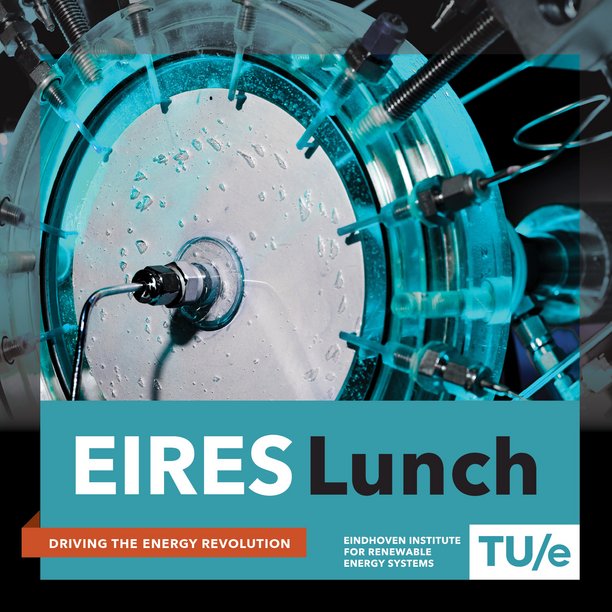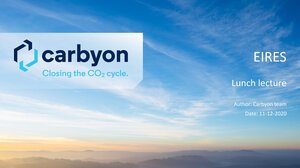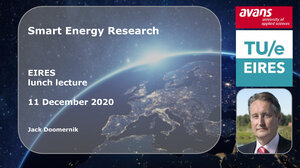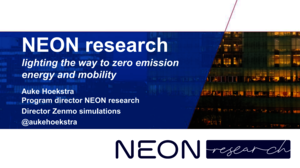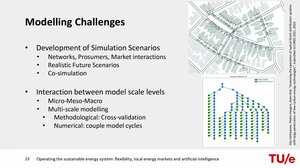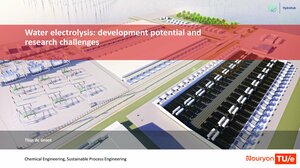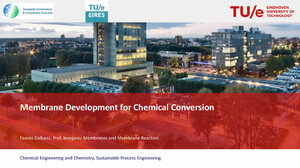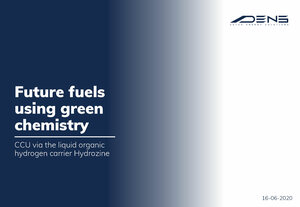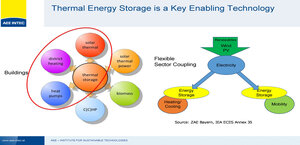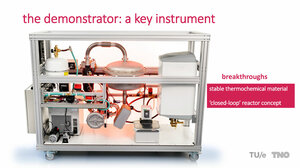EIRES Lunch | 11 December 2020
Topic & Program:
Smart Energy Engineering
Organized by:
EIRES | Focus Area - Engineering for Sustainable Energy Systems
Led by Principal Scientists:
Niels Deen - John van der Schaaf
Jasper Simons & Dries Van Eyck | Carbyon
Carbyon - Closing the CO2 cycle
As a spin-off from TNO, Carbyon’s scientists and engineers are working with various partners (a.o. TU/e and DIFFER) on breakthrough technology to capture CO2 directly from the atmosphere. Carbyon’s unique machine design and energy efficiency makes capturing significantly cheaper than current standards, enabling a viable pathway for worldwide deployment. In this way they aim to realize the dream that they share: to tackle climate change… it can not wait!
Jack Doomernik | AVANS
Smart Energy Research
Jack Doomernik gave an outline about the way research is organised at Avans University of Applied Sciences and explained the way the gap is bridged between scientific research and practical application. He also introduced the Smart Energy research programme, the current research portfolio, the facilities and the collaboration with partners.
EIRES Lunch GUEST lecture | 27 November 2020
Topic & Program:
Introduction to EIT InnoEnergy by Jacob Ruiter, EIT InnoEnergy
EIRES Lunch | 13 November 2020
Topic & Program:
Focus Area - Systems Integration
Organized by:
EIRES | Focus Area - Systems Integration
Led by Principal Scientists:
Lisanne Havinga - Guus Pemen
Auke Hoekstra | TU/e - ZENMO Simulations
NEON Research
NEON is a multidisciplinary research program addressing three interrelated societal challenges: climate action, renewable energy, and smart & sustainable transport. As part of NEON, agent-based simulation and other modelling approaches are adopted to evaluate integral, quantified and potentially disruptive scenarios that address energy, mobility and climate challenges.
Koen Kok | TU/e
Operating the sustainable energy system: flexibility, local energy markets and artificial intelligence
Koen Kok recently was appointed as a Full Professor Electrical Power Systems at TU/e. He will introduce his extensive research experience and future research agenda in the fields of market-based control of power systems, smart grid ICT architectures, transactive energy and integration of distributed energy resources and demand response in the electricity system.
EIRES Lunch | 16 October 2020
Topic & Program:
Engineering Systems for H2 Electrolysis
Organized by:
EIRES | Focus Area - Engineering for Sustainable Energy Systems
Led by Principal Scientists:
Niels Deen - John van der Schaaf
Thijs de Groot | TU/e - Nouryon
Water Electrolysis: Development Potential and Research Challenges
Green hydrogen produced by water electrolysis is an essential ingredient to reach a society without CO2 emissions. To reduce the costs of the energy transition, it is essential that water electrolysis equipment becomes much cheaper. This requires a combination of scaling up and innovations. In this lecture the development potential and research challenges of the water electrolysis technologies will be discussed.
Chan Botter | SOLID
Iron Fuel
For a livable future CO2 emissions must be cut drastically. Over 40% of the global CO2 emissions are produced by the electricity and heat producing industries where there currently is no alternative solution. Iron fuel is a CO2-free, circular and compact fuel that is able to transform these industries. SOLID is a student team from the TU/e that aims to progress the energy transition by developing the technology of iron fuel.
EIRES Lunch | 02 October 2020
Topic & Program:
Recent developments in Chemical Conversion
Organized by:
EIRES | Focus Area - Chemistry for Sustainable Energy Systems
Led by Principal Scientists:
Adriana Creatore - Marta Costa Figueiro
Fausto Galluci | TU/e
Membrane Development for Chemical Conversion
The storage of renewable energy can be accomplished by the chemical conversion of small molecules like nitrogen and carbon dioxide. These molecules can be converted in hydrogen storage molecules like methanol and ammonia. During this lecture the latest development of inorganic membranes to be used in the advanced reactors for conversion and storage of energy will be presented. These membranes include ceramic membranes, carbon membranes and metallic membranes.
Thomas Stroes | DENS - Dutch Energy Solutions
DENS - Green Chemistry for Future Fuels
The energy transition will result in a large amounts of renewable electricity which puts pressure on the electricity grid. To keep the grid functioning methods for energy storage will be required. DENS believes that using part of this electricity to generate fuels using green chemistry is a way to help accelerate the energy transition and contribute to making clean power available at any place on the planet. Therefore, DENS creates systems which catalytically convert Hydrozine (formic acid) into hydrogen and generate electricity from this.
EIRES Lunch | 18 September 2020
Topic & Program:
Thermal Energy Storage for the Built Environment
Organized by:
EIRES | Focus Area - Systems for Sustainable Heat
Led by Principal Scientists:
Henk Huink - Silvia Gaastra-Nedea
Wim van Helden | AEE INTEC (Institute for sustainable technologies)
Thermal Energy Storage for the Built Environment
The heat demand for space heating and hot water preparation in the built environment has a major share in the total energy demand. The challenge in covering this demand with 100% renewable energy is huge, as the built environment is very diverse, has a broad range of building and heating technologies and a very large number of market players. The problem is further deepened by the large difference between winter and summer demand, especially in Europe. What is the role of thermal energy storage and which developments are ongoing? And what should be done in the field of materials and components research and developments, in order to have the proper technologies in place in 2030?
Olaf Adan | TNO - TU/e
Bringing Heat Storage Technology to the Market
